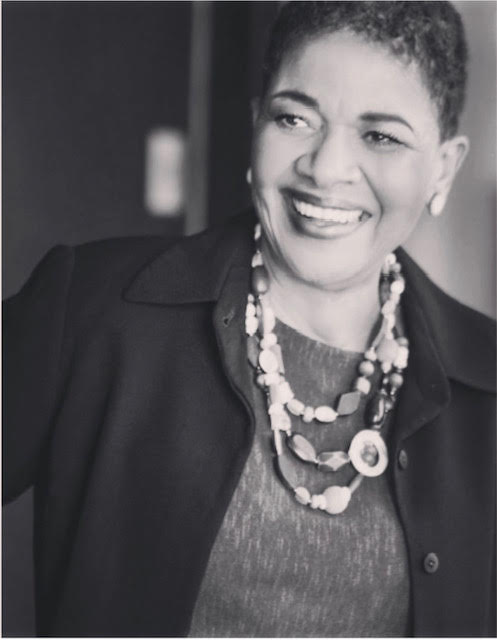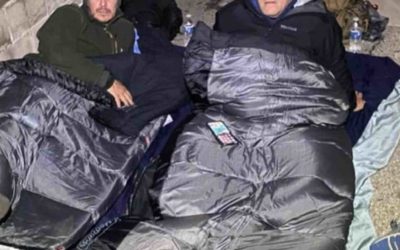Guest contributor Cheryl Farrell advocates personal storytelling when facing loss of a dream
Women of a certain age (like me) often report that their lives have not turned out how they had imagined. I hear from individuals in my communications workshops that their hopes for career, relationships, and health were not realized due to unforeseen circumstances. In response, I demonstrate the healing properties of writing and sharing our stories.
Storytelling is defined as “communicating something personal that inspires others to feel and to think.” Personal storytelling helps us see how we are more alike than unalike. The human connection through stories is backed by neuroscience and seen in literature, theater, mythology, and religion. There’s something supernatural about telling our stories that benefits the storyteller and those who hear it.
On Broadway … Sort of
When I attended Audubon Junior High School in South Los Angeles, I desperately wanted to take the musical production class led by a beloved teacher, Mr. (Mario) Lomeli. He cast teenagers in highly acclaimed musical theater performances that I vividly recall. The sights and sounds of “How to Succeed in Business Without Really Trying” and “Flower Drum Song” were my favorites. One of the standout performers, James Saito (known as “Jimmy”), became an Obie Award winning actor. Students in all grades became Broadway-like audiences for the shows. The singing, dancing, and live orchestra delighted my soul!
I sang in church youth choirs and was often selected as a good voice for solos. I was plain-looking, shy, and nervous before singing in front of others. Yet, once I was on a stage, I felt at home. I wondered if this feeling was a premonition of my purpose, or if it was the product of an overactive imagination. Whatever the source, my vision to perform was an exciting escape from everyday life.
I was raised by an aerospace engineer mother in a middle-class neighborhood of African American and Asian American families. My mother’s priority for me was science and math classes. As an adult, I can appreciate that emphasis for young Black children. But, as a child, I thought it went against my very reason to exist.
In my final year at Audubon, I auditioned to be a graduation speaker (without telling my mother). The program included performing scenes from a play. Mr. Lomeli, as the academic advisor, held a casting call. After I presented my lines, he bellowed from the dark recesses of the school auditorium, “Where have you been! You are a natural!”
I was elated to be a graduation presenter on the massive stage of the Santa Monica Civic Auditorium. It was such a professional experience with rehearsals, call times, acting instruction, and other aspects of theater life. During the graduation show, I impulsively adlibbed my lines when a classmate forgot his lines due to stage fright. I can’t recall what I said, but the crowd roared with applause at my pubescent sassiness. It was a seminal moment in my dream to be a professional singer and actor.
In the decades after middle school, I envisioned singing in huge concert halls. I imagined a signature wardrobe of black organza gowns. Audiences would cling to every note of my songs about love and hope. I wasn’t sure of the music genre, but my gospel roots would run through them all.
 I tried so many things to achieve my artistic goals: auditions, coaches, song-writing pitches, crowdsourced collaborations, workshops, and yet, the dream remains a dream. To support the fire in my belly, I took corporate jobs. As a business banker by day and artist by night, I’ve written and recorded demos in studios from Los Angeles to Nashville. I’ve sung at weddings, memorial services, corporate events, and faith services in Baptist churches and Buddhist temples.
I tried so many things to achieve my artistic goals: auditions, coaches, song-writing pitches, crowdsourced collaborations, workshops, and yet, the dream remains a dream. To support the fire in my belly, I took corporate jobs. As a business banker by day and artist by night, I’ve written and recorded demos in studios from Los Angeles to Nashville. I’ve sung at weddings, memorial services, corporate events, and faith services in Baptist churches and Buddhist temples.
I had a brush with celebrity fame. The pinnacle of my entertainment experience was singing 20-second “clues” on the iconic game show Jeopardy! In 2001, I sang a Christmas carol during Final Jeopardy! Also on the show, I sang We Shall Overcome in the historic pulpit of Ebenezer Baptist Church. And, I crooned a few Motown tunes at the famous Apollo Theater. Granted, I performed without a live audience, but it was still electrifying as I stood on the legendary stage.
My television experience was fleeting. I looked up one day and my contract ended. I continue to sing at church and that is important to me. I have had an amazing life and no regrets. Yet, there’s no denying the loss I felt about my childhood dream.
Fortunately, and to my surprise, a peace came over me when I developed my personal story and told it to others.
Digging from the Depths
Storytelling excavates the what-could-have-been to unearth the courage to carry on. When we share our personal story, we help others imagine their future. Not so much as a predictor of facts, but as a beacon of hope.
Imagine hauling a load of your personal belongings strapped to your back. Then, imagine someone offers you luggage with wheels to make the load easier to transport. The load is still there, but the wheels become your friend as you pull forward. Storytelling is the wheeled luggage that transports a cumbrous load of emotions.
How About You?
Have you ever had an unrealized opportunity that left you feeling lost? Unmoored? Unable to shake haunting thoughts? What happens to our identity when we lose something that had our name on it? Have you experienced the loss of a dream job or professional reputation? Or, a breast to cancer, home to foreclosure, hair to alopecia, a spouse to divorce, the loss of a child in utero, or a cherished pet?
The “what could have been” in our life is more than a minor disappointment or delayed gratification. These heartbreaks are linked to the expectation of a future that feels lost. While we don’t get over the loss, we can get through it.
Find Your Tribe
Personal stories present the arc of navigating through various kinds of loss and then coming up for air. The story arc in its simplest form is, 1) background, 2) conflict, and 3) resolution. The arc does not necessarily yield a happily-ever-after conclusion, but it assures that the conflict of today will be abated. We may go through recurring waves of the arc, but our stories always find its equilibrium.
Know your story—acknowledge how the loss makes you feel. Then, find your people to share your story. A handful of friends (or just one) will do. Honor the rules of engagement:
- No comparison of losses—your experience may not look like a loss to others
- No consoling one another based on relativity, e.g., “At least you still have…”
- Be thoughtful about who deserves to know your personal story
By disclosing our experiences we create an emotional buoy. We can steady ourselves and be reoriented to our surroundings. You may see yourself in the stories of others and adopt solutions that work for you. I am a storytelling advocate, especially during periods of grief. I believe the manifestation of a dream may die, but what lives on is how the dream makes us feel. Keep the dream alive by sharing your story. You’ll be in great company.
Author’s Note:
Special thanks to trusted friends and colleagues who shared their stories to help others see that they are not alone. View the stories of Diane Griggs, Pamela Davis, and Alice Sanders who courageously speak about overcoming the grief of what might have been.

By CHERYL FARRELL
Cheryl Farrell is an award-winning performance storyteller and corporate communications consultant. She is founder of Cheryl Farrell Communications LLC that coaches corporate clients in diverse industries. Her trademarked Pop-Up Storytelling for Organizations helps business leaders and employees collaborate better by sharing personal stories in a strategic and structured way. She believes, “where there’s a problem to be solved, there are stories to be shared.”
Cheryl’s eclectic career for more than 30 years includes roles as vice president of communications for a major U.S. bank as well as recurring television personality on the popular quiz show Jeopardy! As a public speaker, she often examines how Black women excel at the intersections of race, gender, and age. Cheryl is writing a book that guides readers to create their stories and share them with others.
Connect With Us on Social Media!
RECENT FAVES
Tips for Hitting the Road with Your Furry Friends
Part 1 of Kathlene McGovern’s 2 part series on the best and safest ways to travel with your furry friends!
I’m Just Curious
Dove Rose give us ideas on how to stay curious! Keep it Fresh in the Kitchen, on the Drive and in your Life. New ideas to keep our mind alive!
Living Unhoused for a Week: Ken Craft Takes to the Streets
Ken Craft of Hope of the Valley lives unhoused on the streets of the San Fernando Valley for 100 hours and shares the challenges, insights and struggles he faced on this journey.



